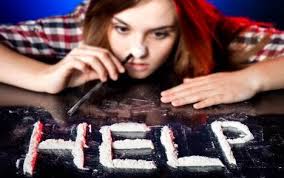Elaborate addiction treatment care

Elaborate addiction treatment care is what will help in bringing solutions we all need
Elaborate addiction treatment care: Where does treatment occur?
There are different elaborate addiction treatment care which often occurs in various categories and settings. These categories can be diversified and every individual patient has a choice to settle on any depending on the intensity of their addiction levels. Many people with addictions start their initial treatment at one level like for instance at the crisis services for detoxification and then move through the system until they can function as a productive and independent member of society. These treatment stages are not cast in stone and therefore can be changed according to convenience. Nonetheless, when one is through with treatment and has attained the maximum benefits from the treatment experience, he or she can be discharged says doctor Dalal Akoury (MD) who is a veteran addiction expert of many decades has been of great help to many people across the globe. Doctor Akoury reiterates the importance of appreciating that each category of care provides a different intensity of treatment meaning that the expert’s opinion will be very vital in settling in any of the categories of treatment.
In the recent consolidation of alcohol treatment services and substance abuse treatment services into chemical dependence treatment services has resulted in four broad categories of care. We will be focusing our discussion on the four categories of treatment taking into consideration that currently even private licensed practitioners also provide alcohol and substance abuse treatment even though they are not reflected in the four categories. Now let us take a look at the summary of the four categories as follows:
- Crisis Services (detoxification and withdrawal)
- Inpatient rehabilitation
- Residential Services
- Outpatient Services
Elaborate addiction treatment care: Crisis services, detoxification, and withdrawal
According to the professional explanations given by the experts from AWAREmed Health and Wellness Resource Center under the able leadership of doctor Dalal Akoury, chemical dependence crisis services manage the treatment of alcohol or substance withdrawal, as well as acute disorders associated with alcohol or substance use. These services are often provided early in a person’s course of recovery and are relatively short in duration, and to be more specific, the process takes approximately three to five days, although some chemicals may require up to 30 days of managed withdrawal. It is also important to note that when administering crisis services it is most likely to lead to a referral for a continued care in a longer-term treatment setting.
Crisis services may include medically managed detoxification in a hospital, medically supervised withdrawal in either an inpatient/residential or outpatient setting and medically monitored withdrawal in community-based settings. Doctor Akoury further says that while services will vary with the patient and the setting, in many instances such services may include:
- Medical management of acute intoxication and withdrawal
- Assessment
- Stabilization of medical and psychiatric problems
- Counseling
- Pharmacological services
- Determination of appropriate long-term care and
- Referrals for other services.
Finally, all these are efforts being made to ensure the broad addiction treatment is achieved. You too can become part of this worthy course by scheduling an appointment with doctor Dalal Akoury and experts from AWAREmed Health and Wellness Resource Center to professionally get firsthand the knowledge you need to be safe from all elements of addiction.
Elaborate addiction treatment care: Where does treatment occur?
http://regenerativepotential.com/wp-admin




